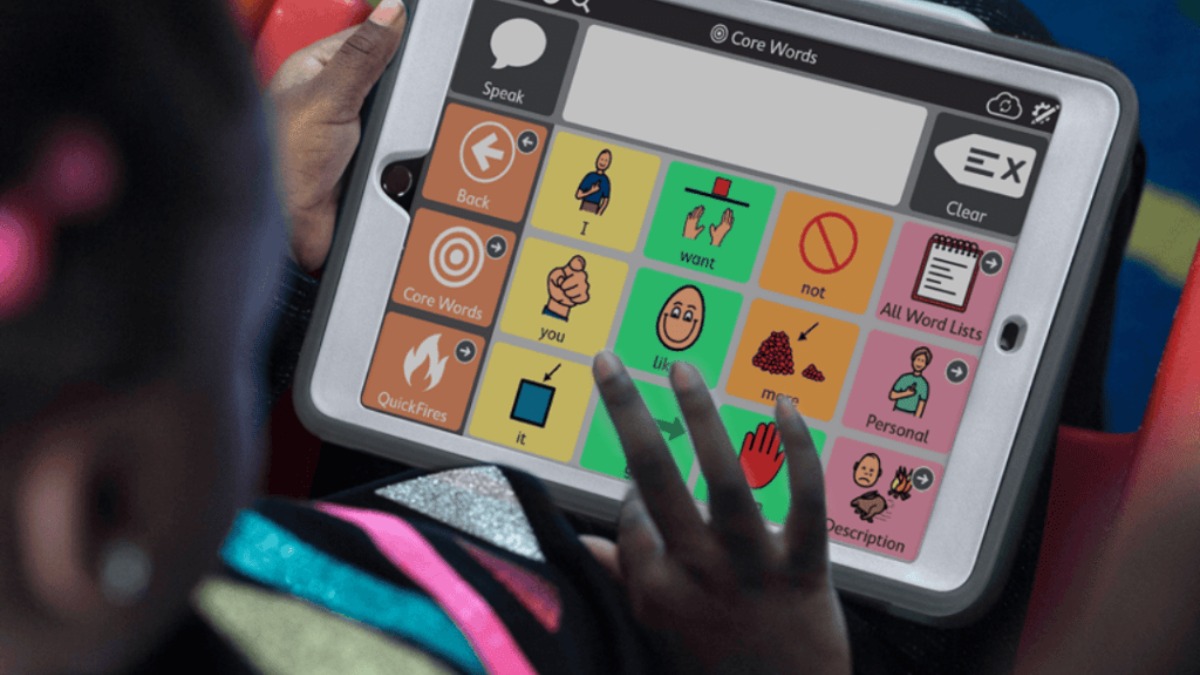How DIR Therapy Supports Toilet Training
April 8, 2025
Learn how DIR Therapy can help with toilet training for children with autism, offering a unique approach to building skills and independence.

Key Points:
- DIR therapy for toilet training helps children develop self-regulation and sensory processing skills.
- The approach focuses on emotional connections, developmental progress, and individual differences.
- Parents and caregivers play an active role in the process, ensuring consistency and a supportive environment.
While specific statistics on the effectiveness of DIR (Developmental, Individual Difference, Relationship-Based) therapy for toilet training are limited, existing research highlights the success of structured behavioral approaches. For instance, the Azrin and Foxx method, an intensive toilet training technique, has demonstrated significant improvements in toileting behaviors among children with developmental challenges. A study involving three young boys with autism reported increased successful self-initiations for toilet use and a decrease in accidents across both home and clinic settings after implementing this method.
Tailoring DIR Techniques for Toilet Training
When applying DIR techniques to toilet training, it is essential to customize the approach based on the child's developmental level and emotional needs. This involves engaging the child in a way that resonates with their interests and preferences.
Key strategies include:
- Playful Engagement: Incorporate play into the toilet training process. Use toys or games that the child enjoys to make the experience more enjoyable.
- Visual Supports: Utilize visual aids, such as charts or pictures, to illustrate the steps involved in using the toilet. This can help the child understand the process better.
- Routine Establishment: Create a consistent schedule for toilet visits. This helps the child anticipate when it is time to use the toilet, reducing anxiety.
Addressing Sensory Needs in Toilet Training
Children may have varying sensory needs that can impact their toilet training experience. DIR therapy emphasizes the importance of recognizing and addressing these sensory preferences to facilitate a smoother process.
Strategies to consider include:
- Sensory-Friendly Environment: Ensure the bathroom is comfortable for the child. This may involve adjusting lighting, temperature, or noise levels to suit their sensory preferences.
- Gradual Exposure: Introduce the child to the toilet gradually. Start with sitting on the toilet fully clothed, then progress to sitting without clothes, and finally to using the toilet.
- Sensory Tools: Provide sensory tools, such as fidget toys or calming scents, to help the child feel more at ease during toilet training.
By tailoring DIR techniques and addressing sensory needs, parents can create a positive and effective toilet training experience.
Benefits of Using DIR Therapy for Toilet Training
Implementing DIR therapy for toilet training offers several advantages that can significantly enhance the experience for both parents and children. This approach not only supports the child's developmental needs but also fosters essential skills that contribute to their overall growth.
Promoting Independence and Confidence
One of the primary benefits of using DIR therapy for toilet training is the promotion of independence and confidence in children. By engaging in a supportive and interactive manner, parents can help their children feel more in control of the toilet training process. This empowerment encourages children to take initiative and make choices related to their personal hygiene.
The following outlines key factors that contribute to fostering independence and confidence through DIR therapy:
- Child-Centered Approach – Encourages participation by focusing on interests.
- Positive Reinforcement – Builds confidence through celebrating small successes.
- Gradual Progression – Reduces anxiety by allowing a comfortable learning pace.
Building Communication Skills
Another significant advantage of DIR therapy in toilet training is the enhancement of communication skills. Through interactive play and meaningful exchanges, children learn to express their needs and feelings more effectively. This is particularly important during toilet training, as children must communicate their readiness and comfort levels.
The following highlights how DIR therapy can aid in developing communication skills:
- Expressive Language – Helps children articulate needs, like using the toilet.
- Nonverbal Communication – Teaches response to verbal and nonverbal caregiver cues.
- Social Interaction – Encourages turn-taking and sharing for better communication.
By focusing on these benefits, parents can create a more positive and effective toilet training experience for their children.
Challenges and Solutions
Toilet training can present various challenges, especially when incorporating DIR therapy. Understanding these challenges and finding effective solutions can help parents navigate the process more smoothly.
Overcoming Resistance and Anxiety
Many children may exhibit resistance or anxiety during toilet training. This can stem from various factors, including fear of the toilet, discomfort with the process, or a lack of understanding. To address these feelings, parents can implement several strategies:
- Create a Comfortable Environment: Ensure the bathroom is a welcoming space. Consider using a potty chair that the child finds appealing.
- Use Familiarity: Incorporate familiar toys or books into the bathroom routine to ease anxiety.
- Gradual Exposure: Introduce the toilet gradually. Start with sitting on the potty fully clothed, then progress to sitting without clothes.
- Modeling Behavior: Demonstrate the process using dolls or stuffed animals to help the child understand what to expect.
Dealing with Setbacks
Setbacks are a common part of the toilet training journey. Children may regress due to changes in routine, stress, or other life events. Here are some effective ways to manage these setbacks:

For additional support, parents may consider seeking professional guidance.
Tips for Parents Implementing DIR Therapy
Implementing DIR therapy for toilet training can be a transformative experience for both parents and children. Here are some practical tips to help parents navigate this process effectively.
Establishing a Routine
Creating a consistent routine is essential for successful toilet training. A structured schedule helps children understand when to expect bathroom breaks, making the process more predictable and less stressful. Parents can consider the following elements when establishing a routine:
- Morning: Encourage bathroom use after waking up.
- After Meals: Schedule visits 15–30 minutes post meals.
- Before Bed: Include a bathroom visit in the bedtime routine.
Incorporating these regular intervals can help children develop a sense of timing and awareness regarding their bodily needs.
Providing Positive Reinforcement
Positive reinforcement plays a crucial role in encouraging desired behaviors during toilet training. Celebrating small successes can boost a child's confidence and motivation. Parents can use various methods to provide encouragement:
- Verbal Praise – Give enthusiastic compliments for successful attempts.
- Stickers or Tokens – Use a reward chart to track progress with stickers.
- Special Treats – Occasionally offer a small treat to reinforce success.
These strategies can help reinforce positive behavior and make the toilet training experience enjoyable. For additional strategies on communication and encouragement, parents may find our article on How DIR Therapy Helps With Speech Delay helpful.

Seeking Professional Guidance
Parents may benefit from seeking professional guidance when implementing DIR therapy for toilet training. Consulting with a DIR therapist can provide tailored strategies and support based on the child's unique needs. Professional guidance can also help address any challenges that arise during the process.
Parents can explore various resources to find qualified DIR therapists. Understanding the qualifications and certifications of therapists can be crucial.
By following these tips, parents can create a supportive environment that fosters successful toilet training through DIR therapy.
Ensure Developmental Growth Through DIR Floortime in New Jersey
If your child needs additional support in toilet training, WonDIRfulPlay provides expert DIR Floortime therapy in New Jersey. Our specialists help children develop the necessary emotional, sensory, and cognitive skills for successful toilet training. Through a personalized, relationship-based approach, we ensure children feel confident and empowered as they achieve this milestone.
Contact us today to learn more about how DIR Floortime can support your child's development.
Recent articles












.jpg)


.jpg)






.jpg)











.jpg)
.jpg)

.jpg)
.jpg)
.jpg)



.jpg)
.jpg)
.jpg)

.jpg)
.jpg)

.jpg)



.jpg)


.jpg)
%20(1).jpg)

.jpg)






.jpeg)









.jpg)
.jpg)
.jpg)
.jpg)
.jpg)


.jpg)
.jpg)
.jpg)
.jpg)
.jpg)
.jpg)
.jpg)
.jpg)
.jpg)
.jpg)
.jpg)
.jpg)
.jpg)
.jpg)
.jpg)
.jpg)
.jpg)
.jpg)
.jpg)
